Intellectual property ownership
Common law
In terms of our (South African) common law, ownership in intellectual property (IP) created by an employee within the course and scope of his employment automatically vests in the employer.
It is generally accepted that “course and scope” means “relating to the work of the employee”. For example: IP relating to a new method of gold mining developed by a secretary employed by a mining house would generally fall outside the “course and scope” of her employment. However, the same invention created by a mining engineer would most probably satisfy the “course and scope” requirement.
On the other hand, ownership in IP developed by a contractor, is generally regulated by the terms of the agreement between the parties. In the absence of an agreement to the contrary, the contractor typically retains ownership of any IP developed by him. However, in such instances, the contractee is generally entitled to an implied royalty-free licence to use the IP for the purposes reasonably foreseen and understood by the parties. (Also see the specific provisions in our Designs and Copyright Act discussed below).
Patents and Designs Act
Our Patents and Designs Acts include provisions that reflect the common law principles regarding ownership of IP developed by employees. However, the Acts go on to declare any contract (including contracts of employment) whereby the employer attempts to:
- secure ownership of inventions or designs made outside of the employee’s course and scope of employment; or
- limit the employee’s rights in inventions or designs developed by him for more than one year following termination of employment,
null and void. In other words, employees are free to sign such clauses as they are legally invalid.
Our Designs Act further provides that where an author of a design executes work for another person, the other person for whom the work is executed owns the rights in and to the design. This is an exception to the general rule discussed above.
Applicants should obtain assignment of IP from all inventors and authors (where the inventor or author is an employee, a confirmatory assignment should be used). For patents, all persons that contributed a feature claimed / to be claimed must be cited as an inventor.
Assignment of patents and designs must be in writing and should be recorded on the appropriate registers.
Trade Marks Act
Generally, the first person to file a trademark application is the owner of that mark. However, exceptions apply where the mark is considered famous or where another person has been trading under, and has gained a reputation locally in the mark.
Assignment of trademarks must be in writing and signed by or on behalf of the assignor. Again, assignments should be recorded on the trademarks register.
Copyright Act
Copyright differs from the other forms of IP in that no registration procedure exists. Copyright subsists automatically, provided works are “original” and reduced to material form (i.e. reduced from a conceptual to tangible form).
Our Copyright Act provides that ownership in copyright vests in the author of the work. However, the person regarded as the “author” depends on the type of work created. In respect of:
- a literary, musical or artistic work, the author is the person who first makes or creates the work;
- a photograph, the author is the person who is responsible for the composition of the photograph;
- a sound recording, the author is the person by whom the arrangements for the making of the sound recording were made;
- a cinematograph film, the author is the person by whom the arrangements for the making of the film were made;
- a broadcast, the author is first broadcaster;
- a programme-carrying signal, the author is the first person emitting the signal to a satellite;
- a published edition, the author is the publisher of the edition;
- a literary, dramatic, musical or artistic work or computer program which is computer-generated, the author is the person by whom the arrangements necessary for the creation of the work were undertaken;
- a computer program, the author is the person who exercised control over the making of the computer program (recently interpreted to mean the person who evaluates the program);
provided that, where a literary or artistic work is made by an author in the course of his employment by the proprietor of a newspaper, magazine or similar periodical, the proprietor is the owner of the copyright in the work, albeit that the author retains copyright when the work is reproduced in non-recurring publications (e.g. posted on the author’s website).
Also, where a person commissions the taking of a photograph, the painting or drawing of a portrait, the making of a cinematograph film or the making of a sound recording and pays or agrees to pay for it in money or money’s worth, such person who commissions that work is regarded as the owner of any copyright subsisting therein.
Assignment of copyright must be in writing and signed by or on behalf of the assignor.
Know-how / confidential information
Ownership of know-how is regulated by common law only (discussed above). However, our law regarding restraint of trade generally does not permit employers to restrain employees from using skills necessary to conduct their trade.
Furthermore, know-how is only protectable (including under the action of unlawful competition) to the extent that the employer has an economic interest therein and such know-how is secret and not generally known by experts within the field.
